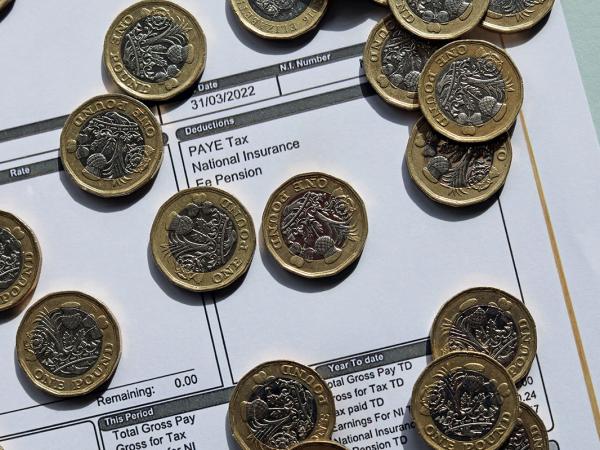NIC on employment benefits and other payments
On this page, we look at how NIC is charged on employment benefits (sometimes called benefits-in-kind) and other payments you receive from your employer other than your normal salary or hourly wage.

Content on this page:
Introduction
Normally, employees do not pay class 1 NIC on benefits and expenses they receive from their employer – for example, a company car or an interest-free loan. Instead, the employer may have to pay class 1A NIC on the benefit.
There are some exceptions to this. For example, if you receive a benefit at can be substituted or sold for a cash equivalent then class 1 NIC may be payable.
Furthermore, if a benefit provided is not chargeable to income tax, then neither class 1 nor class 1A NIC is due on the benefit in kind. This includes things such as private pension contributions made by an employer. You can read more about income tax on employment benefits on our page Employment benefits.
On GOV.UK, you can use the A to Z list of expenses and benefits to see the tax and NIC treatment of any benefits your employer gives you. Although this is aimed at employers, it may also be useful to employees.
Salary sacrifice arrangements
Your employer may offer a salary sacrifice scheme that enables you to swap cash salary for non-cash benefits. You cannot participate in salary sacrifice schemes where your pay would be reduced below the national minimum or living wage.
Non-taxable benefits
If the benefits you receive under a salary sacrifice scheme are not liable to tax and/or NIC (for example, employer pension contributions) then you can be in a better position overall than if you merely purchased the benefit from your net (after tax and NIC) salary.
Taxable benefits
Generally, any salary that is given up in exchange for taxable benefits remains liable to tax and NIC (with no additional tax charge arising in connection with the benefit obtained in exchange), unless the cost to the employer is more than the salary given up: in that case, the higher value is used.
Low earners
If you are a low earner, the advantages of salary sacrifice arrangements can be limited. If you normally earn employment income between the lower earnings limit (£123 per week in 2024/25) and the earnings threshold (£242 per week in 2024/25), you do not pay class 1 NIC anyway, so switching from cash to a non-cash benefit will not save class 1 NIC for you.
If the salary sacrifice reduces your earnings below the lower earnings limit, you could be in a worse position. If this happens, you do not pay class 1 NIC, but your NIC record is not credited. This means that you might lose entitlement to contributory benefits and the state pension, unless you receive NI credits in another way, or have another employment/self-employment which separately gains you a qualifying year.
If you are a low paid worker in a ‘relief at source’ pension scheme, also see our pensions guidance for more information on salary sacrifice and a warning about entering a salary sacrifice pension scheme.



